When there are high unemployment levels, markets crash, and cash flow issues, we cannot help but find out how to prepare for a recession. This is absolutely inevitable.
The 2008 Great Recession brought a lot of fear, anxiety, and uncertainty to the American population and businesses.
With the country's GDP plunging by 3.8%, the employment level decreasing by at least 6%, and the S&P 500 crashing by 57%, it was certainly no joke. The European Union also felt the heat, with its GDP dropping by 4.4% while over 6.7 people lost their jobs between 2008 and 2013.
Since then, these economies have significantly shaped over the last 1o or so years.
But then the COVID-19 pandemic hit. The lockdowns brought about a massive loss of jobs, less production of products and services, and eventually all-time high inflation. And now it seems that these things can happen at any time.
But how can you prepare for such eventualities? Is it possible to prepare for a recession?
Well, several things or signals are visible before a recession is imminent. That means it's possible to plan for it.
And since it affects not only the country's economy but also your personal finances, you also need to know how to prepare for a recession at an individual level.
For example, you can work on your credit scores. Learn how to increase your credit score to increase your chances of getting funds at better terms when you have a looming financial crisis.
Besides that, here is everything you need to know about a recession and how to rise above it:
Table of Contents
What is a Recession?
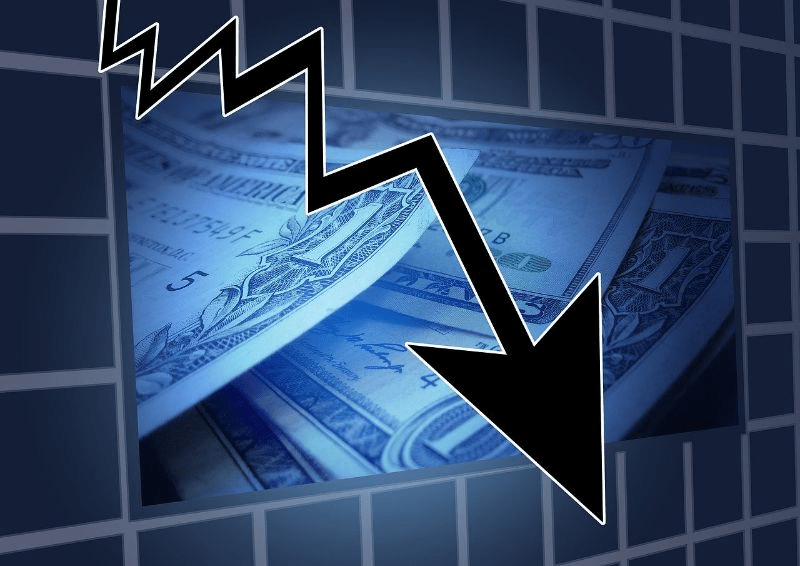 People tend to thrive when the economy is good. As industries thrive, so does the majority of the population. There are employment opportunities and the benefits of earning an income.
People tend to thrive when the economy is good. As industries thrive, so does the majority of the population. There are employment opportunities and the benefits of earning an income.
But what happens when things aren't as good and there's economic turmoil? Some periods can last years when the economy isn't good and industries suffer. This is what is known as a recession.
A recession is in play when there's negative GDP (Gross Domestic Product) for two or more quarters. The more there's a downward shift in economic activity in different parts of the world, the more complex the recession.
Now, when it comes to duration, this can differ. Some recessions only last a few months before there's a shift from the downward spiral. However, some can last years and have a devastating effect on the global economy.
There have been numerous recessions experienced globally since the 1960s. In fact, there have been tens of recessions that have had an impact on the world's economy.
But, there have been no significant recessions lately as the world was in a better position. That's up until the global pandemic. Now, there are signs of another global recession, and it's essential to know how to prepare for it.
So, how can you predict a global recession is imminent?
Well, the primary way is when you note an inverted yield curve. This has been a determining factor of recessions in the US since 1955. Each inverted yield curve since that time has led to a recession.
The main body that announces recessions is the NBER (National Bureau of Economic Research). It has the authority to announce the beginning and end of a downturn in the US.
But what causes a recession?
What Happens in a Recession?
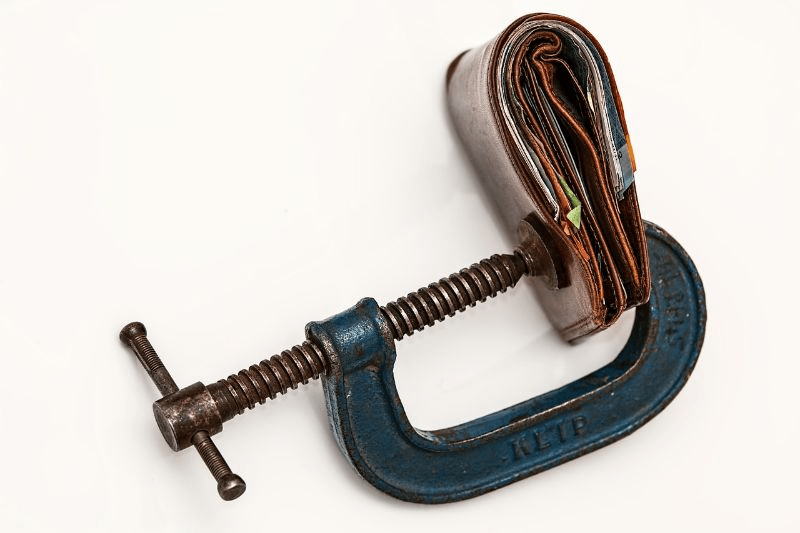
As mentioned, a recession is a period of economic decline lasting at least six months. During this period, the unemployment rate rises, and businesses close due to low consumer demand. This further affects the spending power of consumers and leads to rising inflation.
It's essential to prepare for the signs of a recession. Look out for changes in GDP, employment rates, and consumer confidence levels as indicators that an economic downturn is about to happen.
Being prepared can help weather the storm better when it does come around.
Recession or not – remember the importance of financial planning. No matter what kind of market conditions you find yourself in, sound financial planning remains essential.
See Related: Best Same Day Pay Jobs You Should Try Today
Which are the Main Drivers of a Recession?
Recessions can start due to different reasons. Some of the main drivers of a recession include:
1. High Debt
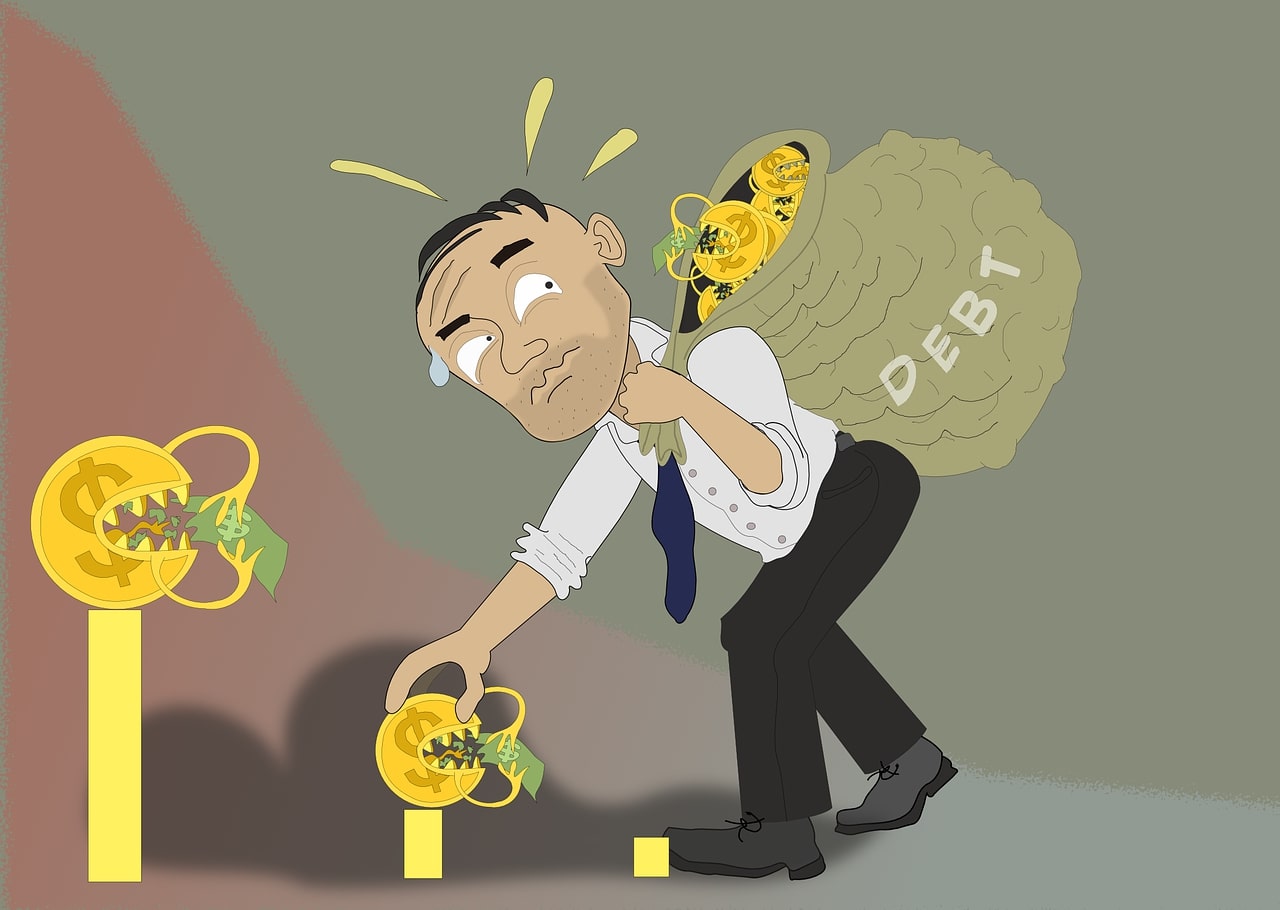
Growing debt is an issue that the US has been facing for a long time. This is one of the main drivers of previous recessions that the country has experienced. Excessive debt leads to a rising service cost and less money to pay bills.
See Related: Credit Card Refinancing vs. Debt Consolidation: What's the Difference
2. Runaway Deflation
If you think inflation is terrible, so is deflation. Facing runaway deflation can lead to all sorts of issues with the economy.
Prices tend to plummet during deflation which leads to a decline in wages. When this happens, the prices worsen, forcing companies and individuals to cease spending.
See Related: How to Make a Day Go By Fast: Incredible Tips
3. Runaway Inflation
Prices that keep rising over time cause inflation. Inflation hurts the economy if it keeps going and going. Recently, there's been growing inflation as the world grapples with the aftereffects of the Covid-19 pandemic.
4. Economic Shock
An economic shock can lead to detrimental financial instability. One example of this is the 1970s recession in the US. OPEC cut its oil supply to the US without warning, which led to a severe recession.
What Gets Hit Hardest During a Recession?
So, who feels the heat the most when there's a recession? Some industries don't do too well during such challenging times:
1. Travel and Hospitality

Tourism is an industry that thrives when the economy is doing well. As more people earn a good living and businesses thrive, there's more money to spend. People can go on vacations and spend time doing leisurely travel.
However, people tend to tighten the purse strings when things turn for the worst. This leads to less spending on things like travel and staying in resorts. As a result, the travel and hospitality industry doesn't fare well and experiences massive job loss.
See Related: Amex Points vs. Chase Points: Which is Better?
2. Retail
Another spending-driven industry is retail. And it's one of the biggest industries in the US since people here love shopping. But, when times are tough, more people tend to cut down on spending, focusing only on essential expenditures.
For instance, Black Friday is a big deal in the US as shoppers look for bargains when doing holiday shopping. However, that wasn't the case in 2022, as more people chose not to spend too much. Folks opted to focus on essential expenses and leave out the rest.
See Related: Free Money Hacks: Ways to Get Free Cash
3. Restaurants
During the 2019 pandemic, the restaurant business was hit the hardest in the US. They did their best to master delivery, but that's not the same as having an establishment full of paying customers.
When a recession hits, most people opt to stay at home, which has a profound negative effect on this industry. There's high job loss as businesses cut back on costs.
See Related: Types of Freelance Jobs to Know About
4. Manufacturing
More retail means more production and delivery of products. When people spend more, manufacturers must meet increasing demand. However, when there's a decline in demand, manufacturers can't produce as much since there's no one to buy.
See Related: Examples of Recession-proof Businesses
How to Prepare for a Recession

Now that you better understand recessions, it's time to learn how to financially prepare for it since it usually leads to job insecurity. Also, as avoiding recessions is impossible, being prepared is an essential strategy. That way, you can cushion yourself against its devastating effect.
Follow these tips:
1. Pay Your Debt
It's tempting to stop paying debt when you know a recession is imminent. But that's not the best strategy. Instead, plan and keep paying your loans or credit card debt for better financial health.
In fact, if you can, pay more than expected to speed up becoming debt free. The best way to have more money is to focus on essential expenses and cut out excesses.
Keep an eye on your personal finance, and work towards clearing that debt. Remember that timely debt payments are one of the best ways to improve your credit score.
See Related: How Old Do You Have to Get a Credit Card? Best Tips
2. Passive Income Opportunities: Learn how to Make Money Online
Another great way to stay ahead of a recession is increasing your passive income sources. Passive income opportunities ensure you still have money coming in even if you lose your job.
In 2022, you can make extra money from the comfort of your home in so many ways. The additional income can cover living expenses, emergency savings, and standard savings accounts. In other words, keep your personal finance in check.
You can use numerous ideas to generate extra money since job security can be shaky. These include blogging, creating an e-book and selling it online, or perhaps creating a course on a specific topic. Learn more options in our blog on how to make money online.
3. Rethink Your Career
There are specific industries that are hardest hit during recessions. You might want to rethink your career if you work in these high-risk industries.
Perhaps you can focus on finding a new career or another income source. Check out recession-proof jobs that offer better job security. These include doctors, nurses, law enforcement, financial advisors, and home care aides.
See Related: Is Consumer Services a Good Career Path
4. Create an Emergency Fund
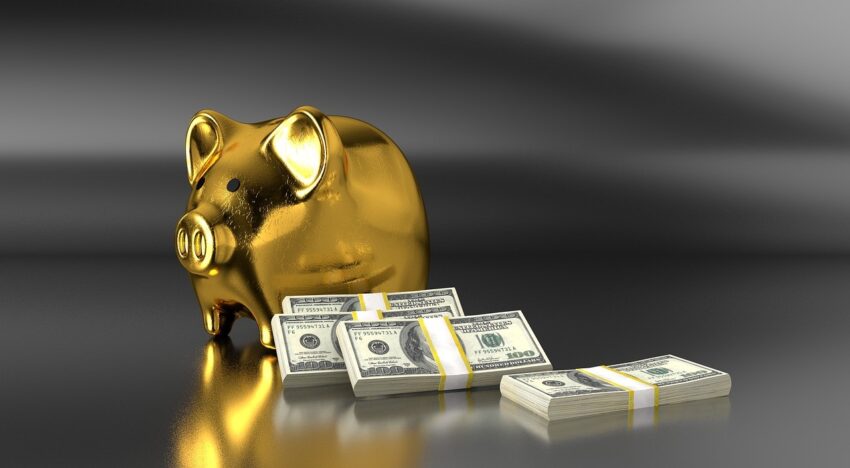
Tightening the purse strings can help you prepare for a recession and maintain good financial health.
When preparing for one, ensure you have an emergency fund. This money in your emergency fund account can see you through this challenging time and come out unscathed financially.
5. Maintain Budget Contributions
Do you contribute to a 401K or retirement savings?
Keep doing that, and make sure you don't fail to contribute to your retirement savings. Remaining on top of essential contributions must be a priority. This secures your financial well-being during times of economic disruptions.
See Related: How to Get Rich from Nothing: Best Strategies
6. Get a Financial Advisor
Finally, if you're feeling overwhelmed by economic uncertainty, seek help from a financial advisor. They can guide you in preparing for a recession and staying financially secure.
They can also provide advice on budgeting and money management during or after an economic downturn. A financial advisor has the right skills to help you create a personal finance plan that works for your situation.
See Related: How to Save $10000 in a Year
5 Things You Shouldn't Do During a Recession
After learning what to do during a recession, here is another list of things you should avoid.
1. Don't Add High-Interest Debt and Pay your Credit Card Debt
Facing tough financial times can be tricky, leading to loads of strain for you and your family. Taking on high-interest debt to offset financial difficulty can be pretty tempting.
But it's better to avoid more debt since this will hurt you later. Work on paying back your credit card debt for better financial stability.
See Related: Can You Pay a Credit Card with a Credit Card
2. Don't Cosign for a Loan
When a recession hits, it's normal for people to take on more debt. However, it's essential to avoid becoming a cosigner for a loan for anyone during such times.
Cosigning loans when times are tough can be risky as there's a high chance of defaulting. And most likely, they end up taking on high-interest debt. This can harm your financial health and affect your financial stability.
3. Don't Slack at Work
A job that provides for all your financial needs is crucial during an economic downturn. Many companies find it hard to retain most of the workforce, leading to layoffs. So, it's better to give your all while at work to avoid the axe.
4. Don't Take an Adjustable Rate Mortgage (ARM)
During an economic downturn, avoid taking an adjustable mortgage. Usually, those interest rates are low when the recession begins. However, as time goes by, they tend to rise. You have to pay more for the loan, which can affect your financial footing.
See Related: How to Invest in Real Estate: Ideal Ways
5. Don't Overspend: Stick to Essential Expenses
Times are tough before and during a recession. With rising inflation, prices are high, and there's less money to spend. So, it's important to spend only on essential monthly expenses and save more money.
Maybe add more funds to your emergency fund, and spend less. An emergency or savings account can offer a good cushion during an economic downturn.
See Related: How to Save Money Fast on a Low-Income
What Should You Invest in During a Recession?
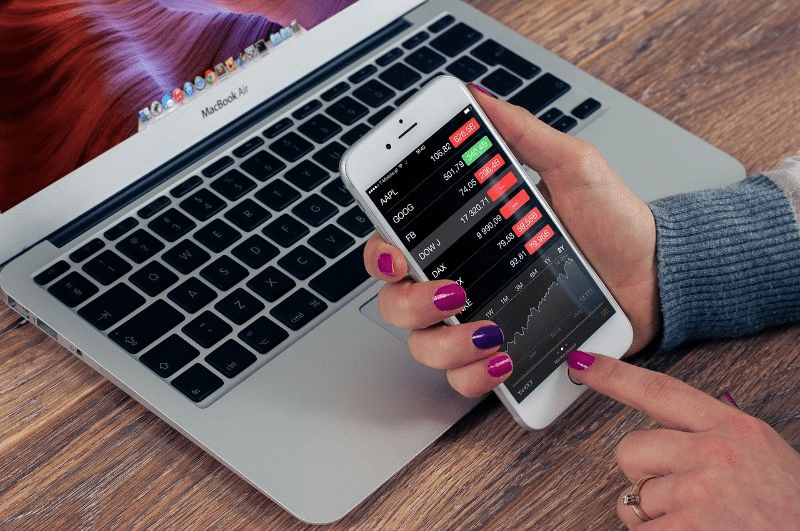
Reducing spending and avoiding adding high-interest debt when preparing for a recession is essential. But that doesn't necessarily mean you stop taking necessary financial steps like investing.
While there are no recession-proof investments, there are investments you should consider.
1. Opt for Dividend Stocks
Investment portfolios are hardest hit during a recession. This is why finding ways to cushion the imminent impact is essential.
A sound investment strategy is opting for dividend stocks. The reason to do so is that companies keep paying dividends on them even during an economic downturn.
2. Invest in Non-Cyclical Stocks
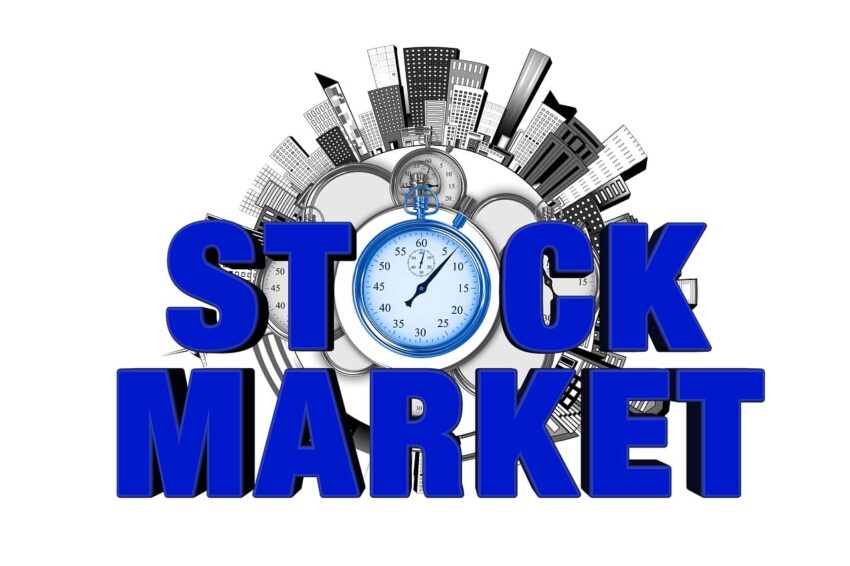
When choosing what to invest in, there are two options available. One is the cyclical stocks, and the other is the non-cyclical stocks on the stock market. Opting for non-cyclical stocks when a recession is better since they safeguard your investment.
Non-cyclical stocks belong to sectors such as health care and utilities. Even during tough economic times, these sectors tend to remain strong. This means you're less likely to lose your investment despite an economic downturn.
See Related: Sites that Give Free Stocks- Start Investing
3. Consider Well-performing Industries
Different sectors make up companies that you find on the stock market. Dividing these companies into sectors makes it easier for investors when investing money into stocks. During a recession, specific sectors have been known to do well and are worth investing in.
Such sectors include health care, energy (renewable energy), utilities, natural resources, information and communication technology, finance, and consumer discretionary. These are great to add to your investment strategy.
See Related: Which Investment Has the Least Liquidity: Best Illiquid Asset Options
Is It Okay to Invest in Mutual Funds and Bonds During a Recession?
There's lots of volatility when it comes to investing during a recession. This is why caution is essential, and knowledge is king. When looking to grow your portfolio, there are many investments, including mutual funds and bonds.
Mutual funds are a good option when looking to invest during a recession. If your portfolio has a few stock options, you won't experience high volatility. Plus, you can wait out the economic downturn and keep your stocks.
Also, consider investing in treasury and savings bonds during these uncertain times. These bonds issued by the US government are safer since they have the government's full backing.
See Related: How to Make Money Work for You: Incredible Ways
Are We in a Recession in 2022?
Despite mixed reviews regarding the US entering a recession in the summer of 2022, it's not. There must be two consecutive negative GDP quarters for a downturn.
The National Bureau of Economic Research (NBER) describes this as an uncommon recession. This is due to the US's growing corporate earnings and thriving labor market.
However, inflation has been on the rise for the past two years. The pandemic profoundly affected the global economy, and the US wasn't an exception. This is why many people are currently preparing for a recession.
Perhaps the country will experience a recession, but that's yet to be seen. Some even state that the strong labor market may increase the chances of avoiding it. Low unemployment statistics and rising corporate earnings indicate a bright future.
FAQs
What is the difference between the recession and depression economic phases?
A recession is a period of economic decline, usually lasting two or more quarters, where the prices of things shoot significantly high that many people struggle to survive. GDP, employment rates, and consumer confidence levels fall during this time. A depression, on the other hand, is an even deeper form of a recession that lasts longer and affects a larger proportion of the population. But with depression, the leading cause of the financial crisis is too low wages.
Are there recession-proof industries?
Yes, certain industries thrive during a recession. These include health care, utilities, natural resources, information and communication technology, finance, and consumer discretionary. Investing in these sectors can help balance your portfolio and protect it from volatility during an economic downturn.
Does a depression always follow a recession?
No, depression is not always an inevitable result of a recession. With the right policies and strategies in place, it is possible to avoid depression after experiencing a recession. The key is to stay informed about the state of the economy and make smart decisions regarding investments.
